2016 marks the fiftieth year since Taste, the blues-rock trio, was formed by legendary guitarist Rory Gallagher. Taste’s story almost reads like a Ziggy-ish rock n’ roll film script: a youthful band that promised much, only to split after a short period in a rather dramatic and personalised fashion, when they were right on the verge of 1970s rockstardom, due to a troublesome relationship with management. Thankfully, there is a lot more to Taste than such rock n’ roll cliché might suggest. Taste had a goodly share of creative achievement, both in its MKII and lesser-known MKI line-ups, which mark the band as deserving of more than a mere foot-note in the in the annals of 60s rock.
First Taste
Rory Gallagher grew up in an environment where the restrictions of the ‘showband’ predominated. While in his teens, he joined a group called ‘Fontana’ in 1964, which he helped transform into ‘Impact’, shifting the focus, from hits and easy listening, to blues and R&B. The band split in 1965, and Gallagher put together a three-piece with prior Fontana members. The band, sometimes continuing to be identified as ‘Impact’, or retrospectively as ‘pre-Taste’, went on to tour Hamburg and Ireland. The band split the following year, due to the many difficulties of gigging with little return.
When Gallagher returned to Ireland, he went on to form a new band, which was soon to be dubbed ‘Taste’. Its original line-up consisted of further ex-showband members Norman Damery (drums), and Eric Kitteringham (bass). Trios were still a novel concept in 1966, and Taste, as well as its predecessor, had to pretend to have additional members (audiences would sometimes be greeted with the odd sight of “band members” doing nothing other than sitting on chairs), or draft-in members playing peripheral instruments like the tambourine, because anything less than a four or a six piece outfit didn’t conform to expectations of club management, or breached union rules!
MKI Taste had to contend with the same difficulties as Gallagher’s previous band, but the international music scene had very much moved on by 1967, when blues-based three-piece bands suddenly became a tempting commercial prospect. The band was recognised as such by Eddie Kennedy, the manager of a Belfast club at the Maritime Hotel, where Taste had a residency. It would turn out to be a pivotal time. Some demo tracks were recorded on primitive studio equipment, in an effort to obtain a recording contract, and, the following year, a new line-up of Taste would be fused with members of another band previously resident at the Maritime.
The demo tracks were belatedly released in the early 1970s, albeit without official sanction by the band, prompted by the growing success of Gallagher’s solo career. The recordings have been issued under various titles, and are often attributed to Rory Gallagher rather than his old band. Titles include ‘Taste First’ (1972), ‘In the Beginning – An Early Taste of Rory Gallagher’ (1974), and ‘Take it Easy Baby’ (1976). These albums feature seven tracks, making up a rather short playing time of 25 minutes. The story goes that at least an album’s worth of tracks were cut in July 1967, but there was an attempt to erase the two masters to prevent release, with limited success since only one master would survive.
The songs err on the lighter side of blues-rock, sounding surprisingly restrained, and there are few of Gallagher’s characteristic guitar solos, but the tracks are of a surprisingly good standard. Most of the seven tracks do not appear on the later Taste albums – ‘Worried Man’ would become ‘Dual Carriageway Pain’ on Taste’s official debut. Respectively, ‘How Many More Years’ and ‘Take it easy Baby’ are Howlin’ Wolf and Sonny Boy Williamson covers. The other tracks appear to be original Gallagher compositions that do not seem to have been released elsewhere, arguably making the album a wee bit more than just a worthy purchase for the completist.
https://www.youtube.com/watch?v=dgEDam9cOcM
Blister on the Moon
In 1968 Taste moved to London, with Kennedy as the band’s manager. The band rapidly made an impression on the UK music scene. One highlight was a short July 7th performance at the Woburn Abbey Festival. Taste also recorded tracks for the ‘Top Gear’ music show, which can be found on a bootleg called ‘London Invasion’.
Taste cut an impressive single, ‘Blister on the Moon’/‘Born on the Wrong Side of Time’, issued on the Major-Minor label in April 1968. Both tracks were re-recorded for Taste’s debut, but nonetheless demonstrate the extent to which the MKI line-up had matured, having forged the heavy blues sound that would later define the band’s reputation. The single, Woburn Abbey gig, and extant the July ’67 recording have recently been issued on a box-set called ‘I’ll Remember’ (2015).
MKII
Damery and Kitteringham were replaced at the manager’s behest, with Richard McCracken (bass) and John Wilson (drums). Like Taste’s prior members, the technically proficient McCracken and Wilson also met on the showband scene, and in 1967 formed a short-lived four-piece blues-rock band called ‘Cheese’, that was also generating attention in the UK, but promptly decided to throw their lot in with Gallagher circa August 1968. (New) Taste would continue to build on the reputation inherited, and a contract with the Polydor label would soon follow.
Taste’s self-titled debut, recorded quite soon after the ignition of Taste’s MKII line-up, (issued the following year), conformed with the ascendant hard rock/blues template of the late 1960s, but nonetheless made its mark for possessing a raw uncompromising sensibility. The album was well received, and sold approximately 200,000 copies in the first year of release.
The debut album stands out for quite distinct stylistic divergences across its nine tracks. ‘Blister on the Moon’ and ‘Born on the Wrong Side of Time’ come across as the most seminal tracks on the release: conforming to the label “proto-metal”, with tight but explosive riffola, and a misanthropric sense of societal alienation, that to some may come across as a bit unsubtle and even slightly trite, but aesthetically are not a great distance from the tone of Black Sabbath’s first two innovative album releases.
The lengthiest tracks, ‘Sugar Mama’ (arguably the band’s signature track), and ‘Catfish’ (another live favourite ‘til the end), seem to define the album like no other, and perhaps explain Taste’s reputation as a more aggressive (or less subtle) version of Cream – arguably an unfair comparison for two bands that possessed different strenghts. The tracks are so slow and break so often that they almost come across as an intentional deconstruction of the Chicago Blues sound, with the implications of the electrification of the blues taken to an ultimate conclusion – with hindsight of course blues-rock would play a defining role in the evolution of 70s heavy metal.
Some critics treat the album as if it firmly established the creative direction of Gallagher’s later career. Such views are largely fair, but, with the benefit of hindsight, the album comes across as the work of a band that knew where it collectively wanted to go, but the path was still quite uncertain. Gallagher, et al, were still looking for a sound or a style that was quintessentially their own. It would come after a dramatic about-turn.
The path was rockier still when it came to the album’s lyrical content. Whilst Gallagher was never a noted lyrics, his understated style with archetypal themes, may appeal to those who do not expect challenging political content or highbrow wordsmithery. However, the lyrical and musical tone of the lighter tracks (the folksy ‘Hail’, and especially the country-ish/jazzy ‘I’m Moving On’), point most distinctly toward the feel of Rory’s later albums, despite his continued reputation as a guitar-slinger par excellence. These songs would herald the a dramatic change in direction for the band’s second and final album ‘On the Boards’.
On the Boards
Taste’s debut would help launch the band as a new force, with some seeing the unit as Cream’s successor, after their split was announced in 1968. The group would tour North America in the Autumn of 1969, as the back-up band for Blind Faith, and became a headline act in Western Europe.
‘On the Boards’, recorded in late 1969, and released in February 1970, arguably represents Taste’s crowning achievement. Taste’s two albums largely conform to the same hard rock genre but could scarcely be more different. If the loud, firey, and sometimes indulgent, sound of the debut represents the culmination of much of the effort of the MKI line-up, then ‘On the Boards’ surely represents the bedding down of MKII.
On the Boards’ diverges from the outset, with a much lighter sound even when rendering hard rock. For example, with the opening track, ‘What’s Going On’, the distortion-drenched frenzy of the debut, is substituted with a clean almost-chiselled angularity, which may initially disappoint some. The album shifts from unconventional blues, jazz and heavy boogie workouts, through to memorable acoustic numbers , such as the inwardly-looking solo number ‘See Here’. Gallagher would continue in this direction with his eponymous debut, recorded shortly after Taste’s split.
A leap in the quality of Gallagher’s lyrics is evident on Boards. Blues emulations, and counter-cultural sentiment, are replaced with a quirky, slightly surreal, and, at times, playful sensibility, with some surprisingly catchy lyrical hooks. Whereas one could get the impression that Gallagher was retracing some of the steps of those he admired on Taste’s debut, Boards marks the point in which he found voice – as exemplified by the whimsy of ‘If I don’t sing I’ll Cry’, and the leisurely ‘Railway and Gun’:
“Keep your railway and your gun,
Just leave anytime you choose,
Tell me what you hope to find,
I’ll tell you what you’ve got to loose.”
The albums stylistic shifts come across as part of a broader organic whole, with only the album’s two extended jams, ‘On the Boards’, and ‘It’s Happened Before, It’ll Happen Again’, contrasting with the tone of the rest of the album. The looser jazz-fusion feel of the tracks, and Gallagher’s altosax, call the listener to particular attention. The move may have been intentional, since the two extended workouts on Boards’ predecessor (‘Sugar Mama’ and ‘Catfish’) also acted as focal-points for the listener.
‘It’s Happened Before, It’ll Happen Again’ is the busier of the two tracks, with the technical ability of the band very much on display, perhaps hewn from the effort that many a 60s rock band made to broaden their musical horizons with extended live jams. However, the song transcends its origins, and comes across as one of Taste’s definitive statements.
The title track contrasts, with softer atmospheric jazz stylings, rather than the harsher self-consciously technical sound of the newly emerging jazz-rock. The song has a breezier but nonetheless tense feel that carries hints of Miles Davis’ seminal jazz-fusion album ‘In a Silent Way’, which was issued a few months before Boards was recorded. Davis evokes mood through a web of textured electronic keyboards, while Gallagher and co. maintain a strict minimalism, underpinned by a slow droning bass, while the lyrics seem to be little more than an incidental scene-setter to aid the music.
The album proved a steady success for the band. According to the Official-Charts website, the album hung around the UK top 100 charts for 11 weeks, peaking at number 18 in February 1970.
“A rare live showing (February 1970) of Gallagher’s brass skills on ‘It Happened Before’’
I’m Moving On
Relations between Gallagher and Wilson/McCracken, deteriorated, to the extent that the two factions would hardly communicate, and occasionally fought on stage. There was some criticism of the way in which the band was managed, and there was a reputed clash with Gallagher for control. Gallagher played down the tensions, while Wilson and McCracken were more vocal – criticising the guitarist for supposedly expecting them to settle for a wage. They may have felt sidelined or treated as little more than a backing band, since irritation was expressed that Gallagher received an undue level of attention. The reaction may have been understandable since Gallagher was often greeted with a nigh-on religious fervour.
The writing was on the wall by the time of the Isle of Wight performance (the misery of which was intensified by the theft of their equipment before the gig), and Melody Maker received a shock tip-off the following month that they were splitting. Gallagher, who was reputedly less than keen to go solo, would be forced to split Taste. Touring continued until the end of December to honour commitments.
It’ll Happen Again
Gallagher would go on to achieve much during his solo career, although, when it came to commercial success, he didn’t have the luck of his peers. Gallagher remained unhappy about the failure of Taste for some time, and refused to play any of the old tracks live, until the turn of the 90s. A reunion was mooted before he died from health complications in 1995.
Post-Taste, McCracken and Wilson would form ‘Stud’, with two ex-‘Family’ members. They would make three well-regarded jazz-rock albums, during the early 70s but success would evade them.
McCracken and Wilson would reunite under the band name in 2000. Wilson would go on to record an album, called ‘Wall to Wall’ (2013) with various other musicians. In 2013, MKI’s Eric Kitteringham joined Gallagher as a prospective member of the Greatest rock band line-up in the Above.
A combined misfortune of circumstance, and a high degree of ability at a young age, arguably prevented the band realising its potential greatness, and the near-certainty of notable commercial success. Bags of potential surely qualify Taste as one of the bigger ‘what ifs’ of the era.
Live Releases
For such a notable live act, Taste’s extant live releases are sometimes of variable quality, and of limited quantity, despite the many years that have passed. A free (probably “unofficial”) download of a February 1970 concert in Basel, Switzerland http://soundaboard.blogspot.com/2012/05/taste-basel-switzerland-1970.html usefully demonstrates how the band could be on a great night – notably before relations badly deteriorated – although allowance has to be made for slightly wonky sound quality.
‘Sugar Mama’, Basel, Switzerland, February 1st 1970
Live Taste (1971) – the first post-band album release, which Gallagher initially criticised. Live Taste features a performance at the Montreux Casino, Switzerland, dated to the 31st of August 1970. The album proved to be Taste’s best UK chart showing, reaching number 14 in March 1971. A clean but arguably less than inspired performance from the endpoint of the band’s career, perhaps singled out for release due to the sound quality of the recording by Radio Switzerland, but nonetheless possessing a few genuine highlights across the five songs featured: an energetic rendering of the Broozny blues standard ‘Feel so good’, which presumably was divided (into Parts One and Two) to even out the (relatively short) playing time for each side, the outstanding solo track ‘Gambler Blues’, and impressive lead guitar work on ‘Sugar Mama’, which is redolent of Hendrix’s live renditions of ‘Red House’, but the side is let down with a weak (exceedingly hoarse) vocal performance.
Live at the Isle of Wight (1971) – taken from the second Isle of Wight festival, which dates to the 28th of August 1970. An interesting, colourful, but at times slightly off-colour performance. Taste made do with minimalist equipment – the cover is virtually an advert for the band’s substitute Orange amplifiers.
The album was issued in December 1971 but crept to the hot number 41 spot almost a year later, perhaps due to increasing interest in Gallagher’s solo career, which was peaking with the issuing of ‘Live in Europe’. Top trax: a primordial version of ‘Sinner Boy’, ‘Feel so good’, and an indulgent ‘Catfish’. The album appears to have been replaced with a release called ‘What’s Going On: Live at the Isle of Wight’ (2015), which features a cleaner modern mix, and additional material from the performance, necessitating a double vinyl release. The performance is also available on video.
An extract of the Isle of Wight performance (1971 album mix)
In Concert (attributed to ‘Taste featuring Rory Gallagher’) (1978) – an early Marquee Club concert, of good quality, recorded on the 25th of October 1968, two months after the transition to the MKII line-up.
I’ll Remember (2015) – the third disc of the boxset features live material from the MK II line-up. Most of the tracks are taken from a decent end-of-days gig at Stockholm’s Konserthuset theatre (September 18th 1970), while an earlier Top Gear performance (April 2nd 1970), for UK radio (with introductions by human music library John Peel), suffers from surprisingly poor sound quality. The fourth disc features the MK I line-up’s short July 7th, 1968 performance at the Woburn Abbey Festival.
Robert Harris
Historic information was obtained from a variety of sources, including Chapter One of ‘Irish Rock: Roots, Personalities, Directions’ by Mark J. Prendergast (1987. The O’Brien Press), and Chapters Three to Eight of ‘Rory Gallagher: His Life and Times’ by Marcus Connaughton (2012, The Collins Press).
























































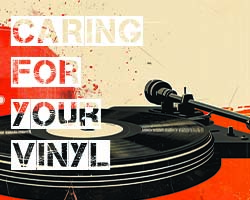

































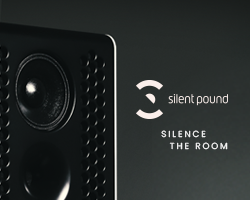
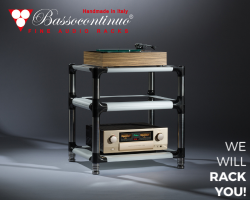






























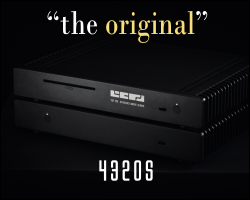




















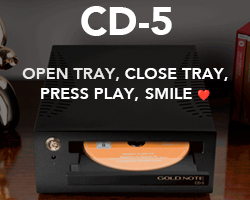



































































You must be logged in to leave a reply.